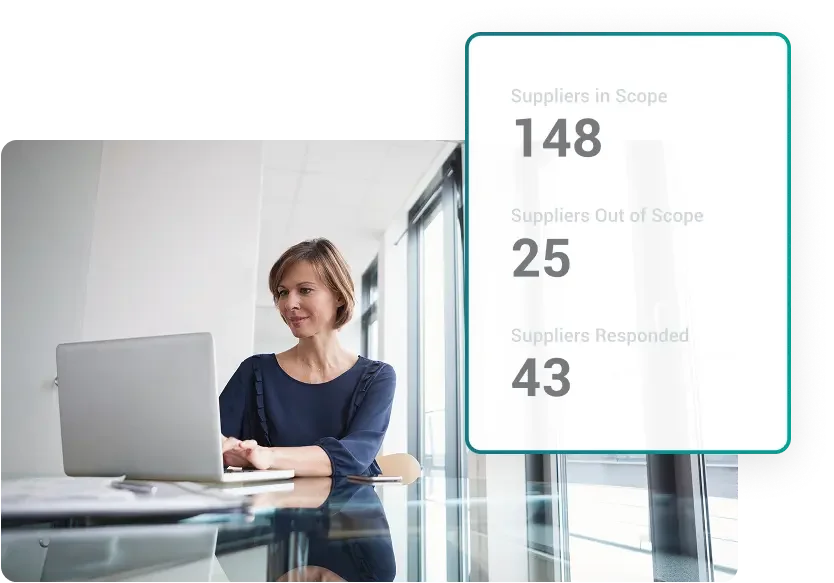Choosing the right supply chain sustainability management software is more than a procurement exercise. It is a strategic decision that determines how resilient, transparent, and future-ready your business will be.
When evaluating vendors, many manufacturing leaders only hear surface-level answers from standard sales conversations. The key is to ask questions that reveal what a platform can actually deliver once it is implemented.
These five questions will help you move beyond the sales message and uncover whether a solution can truly support your compliance and sustainability goals over time.
1. How Does Your Platform Keep Pace With Changing Global Regulations?
Supply chain compliance changes constantly. Regulations such as REACH and RoHS, PFAS restrictions, and forced labor laws evolve quickly and differ from one region to another. A capable product compliance software solution must do more than track requirements. It must help you stay ahead of them.
Ask vendors:
- Who maintains your regulatory templates and substance lists?
- How frequently are compliance templates and requirements updated in the system?
- Do you employ in-house experts who monitor global changes, or do you rely on third-party feeds?
- Will our account be managed by compliance specialists or general IT staff?
- How will your team help us interpret supplier data and respond to customer or auditor requests?
- When new regulations emerge, do we receive proactive guidance or only a software update?
The answers will show whether the platform provides true regulatory intelligence or simply stores data. A partner with dedicated compliance experts and integrated updates will protect your market access and reduce the risk of outdated information. Make sure to dig deeper — many supply chain vendors claim to have expertise, but they can’t back it up when you ask for proof.
Assent’s in-house regulatory experts are the real deal. They continuously monitor and interpret global regulations, updating our platform and content in real time. You gain access to world-leading compliance expertise with nearly 200 years of combined boots-on-the-ground experience running global compliance programs and designing responsible sourcing initiatives.
When Hologic, a medical device manufacturer, needed guidance on PFAS reporting and avoiding part obsolescence, they chose Assent for our expertise: “Assent is not just a tool. It’s subject matter experts to help guide your program and people to support your goals. It’s tried and true, and validated. I’ve used pretty much every other solution, and in my opinion, they don’t compare.” —Joe Langton, Senior Manager, Chemical Compliance, Hologic
2. How Do You Handle Supplier Engagement & Data Validation?
Collecting supplier data is only the first step. Ensuring that information is complete, accurate, and validated is where most programs encounter problems. The best supply chain software enables consistent global supplier engagement and ensures that the data you rely on stands up to regulatory scrutiny. Be on the lookout for “checkbox compliance” software solutions that only automate outreach but don’t include services and support to educate and engage suppliers.
Ask vendors:
- How do you engage suppliers across languages and regions?
- Do you provide support to help suppliers respond, or only send surveys?
- How is data validated before it enters our database?
If the process depends heavily on spreadsheets and manual follow-ups, it will not scale effectively. Look for a solution that centralizes communication, standardizes data collection, and blends automation with expert review to maintain data integrity.
The Assent Sustainability Platform manages supplier communication in multiple languages, guides suppliers through requirements with human and AI-support, and validates submissions for accuracy before they reach your reports. Beyond the technology, our dedicated services team provides hands-on supplier engagement support, program management, and regulatory expertise to ensure lasting success.
See how Pico Technology achieved an 80%+ supplier response rate on initial campaigns by using Assent to send requests, reminders, and escalations in their suppliers’ native languages to reduce supplier fatigue. Read their story.
3. How Will Your Platform Scale as Business & Regulatory Requirements Grow?
Many manufacturers begin with initial compliance requirements and later expand into broader product sustainability goals. As the scope grows, so does the pressure on your systems. A scalable supply chain sustainability management software platform should evolve as quickly as your regulatory and business environment.
Ask vendors:
- How many suppliers, parts, and regulations can the platform manage reliably?
- Can it integrate with our ERP or PLM systems to avoid data silos?
- How easy is it to add new programs or reporting frameworks?
Scalability involves more than capacity. It reflects a vendor’s ability to anticipate change, manage complexity, and maintain performance as your organization matures.
The Assent Sustainability Platform gives manufacturers long-term flexibility to adapt as their operations and requirements evolve. Its configurable workflows, powerful integrations, and continuously updated regulatory content ensure your compliance and sustainability programs keep pace with business growth and global change. Rather than replacing systems every few years, you can expand confidently within a single, scalable solution.
IMI, a global specialist engineering company in fluid and motion control applications, chose Assent to manage their programs as new regulatory demands including Proposition 65, the EU Medical Device Regulation, and PFAS, emerged, and as their product sustainability goals grew. The flexibility in Assent’s platform lets IMI add modules and scale supplier engagement without rebuilding systems. Read about the long-term partnership between IMI and Assent here.
4. How Is My Supply Chain Data Protected & Secured?
Your supply chain data includes sensitive information about products, suppliers, and materials. A breach or data mishandling incident can have serious business and regulatory consequences. A trusted partner treats your data as an extension of your own systems, with security controls that meet or exceed industry standards.
Ask vendors:
- Where is our data stored, and who has access to it?
- What certifications or third-party audits verify your data security practices?
- How do you ensure data protection when engaging suppliers across different regions?
Look for a provider that applies strict data governance, complies with relevant privacy regulations, and maintains transparency about where and how your information is managed. Strong supply chain software should protect both your data and your reputation.
Assent treats your supply chain data as a critical business asset, protected by enterprise-grade security and privacy controls. We maintain compliance with leading global standards, including SOC 2 Type II and ISO 27001, and conduct regular independent audits to verify those safeguards. Our data centers use advanced encryption and access management protocols to ensure information is secure at every stage, from supplier submission to final reporting. In addition, Assent’s internal governance and training programs ensure that every employee handling customer data upholds the same rigorous security standards as our technology.
5. How Are You Using Artificial Intelligence Responsibly in Your Platform?
Artificial intelligence has become a powerful tool for identifying risks, improving data accuracy, and predicting supply chain disruptions. However, not all AI is created equal. The right product sustainability software should use AI to enhance insight and efficiency without compromising accuracy or transparency.
Ask vendors:
- How is AI applied within your platform today?
- Can you explain how your models are trained and validated?
- How do I know my data is secure and confidential regarding AI tools?
- How do you ensure human oversight of AI-driven decisions?
- What specific productivity gains does your AI give me, or is it just a marketing gimmick?
Responsible AI should be explainable and designed to support, not replace, expert judgment. Look for vendors that use AI to strengthen data analysis, automate repetitive tasks, and uncover emerging risks, while maintaining full accountability for results.
Assent applies artificial intelligence to enhance the speed and accuracy of supply chain data analysis while maintaining full human oversight. Our AI tools help identify patterns, flag potential risks, and streamline supplier data review so compliance teams can focus on strategic decision-making. Every AI feature is developed under strict governance standards that prioritize transparency, accountability, and data privacy. This ensures that automation strengthens, rather than replaces, expert judgment.
The Bottom Line
Selecting the right supply chain software partner is not about finding a vendor with the longest feature list. It is about choosing a team that understands the complexity of manufacturing, the urgency of compliance, and the opportunity within sustainability. The questions in this article will help you uncover the truth behind the sales pitch and identify who can truly support your long-term success.
When you ask deeper, more informed questions, you uncover what really matters. You also identify which vendors are equipped to support your business as it grows and which ones are not.
Put Assent to the test, and you’ll see why we stand out against our competitors. Get a deep dive into how we stack up here. And when you’re ready to see the platform for yourself, click here to book a demo with one of our specialists.
FAQ: Supply Chain Software ROI & Value
Learn what too look for in supply chain sustainability software when talking with potential vendors.








